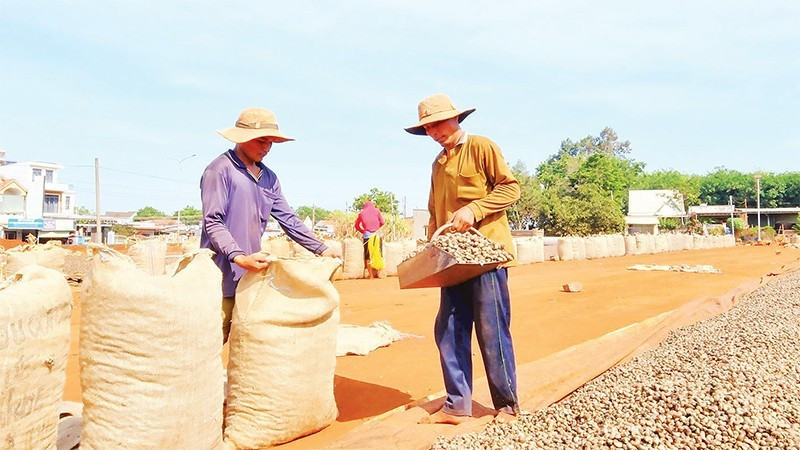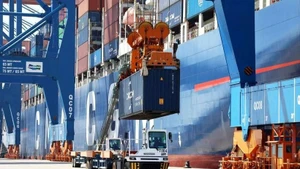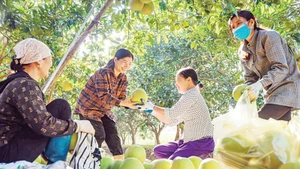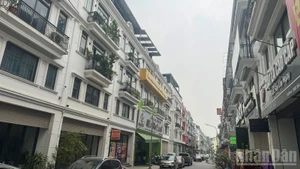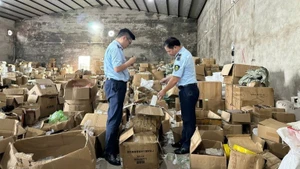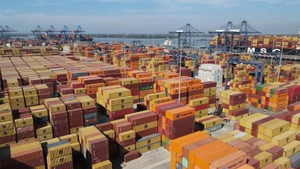However, cashew exporters still rely heavily on imported raw materials, making sustainable development difficult to achieve in the face of increasingly fierce global competition.
They need to focus on two key factors: building stable and sustainable raw material zones, and promoting deep processing to enhance product value.
Enterprises’ proactiveness
Nguyen Hoang Dat, Vice Chairman of the Binh Phuoc Cashew Association, stated that most cashew nut processors in Dong Nai Province rely on raw cashew nuts from Africa, which not only poses risks regarding pricing and logistics but also affects the industry’s autonomy and stability.
In recent years, cashew processing companies have worked with local authorities and farmers to invest in building domestic cashew raw material zones, helping to ensure supply while supporting cashew growers in increasing their income.
With 20 years of experience in cashew production and processing in the western part of Dong Nai Province, Nguyen Thi My, General Director of Ha My Joint Stock Company, has proactively built raw material zones. To date, My has partnered with cashew-growing cooperatives in the communes of Dak Nhau, Phuoc Son, and Bom Bo to jointly produce organic cashew nuts.
My stated: “Binh Phuoc has many advantages for developing cashew processing industry but has not received adequate investment. Therefore, I quickly established raw material zones, invested in processing plants, and sought markets and distribution partners. Today, the company has secured its raw cashew supply and offers dozens of cashew products, meeting domestic market demands and exporting to demanding markets such as the US, Japan, China, Republic of Korea, and Canada.
In addition to building raw material zones, enterprises are also proactively applying science and technology to promote deep processing. This is a solution to enhance product value, increase competitiveness, and expand markets. Nguyen Hoang Dat, Director of Vinahe Ltd. Company, said: “During the cashew processing and production procedures, we focus on applying science and technology, considering it the key to success. Applying science and technology reduces many intermediate stages in the production process, increasing productivity and product quality.”
Supporting farmers
Following the merger with Binh Phuoc Province, Dong Nai Province has over 160,000 hectares of cashew trees, accounting for approximately 50% of the country’s total cashew area. However, most of the cashew area was planted long ago and has become deteriorated over time, with low productivity and quality. Faced with this reality, the province has made efforts in recent years to implement various solutions to rejuvenate its cashew gardens.
A key solution is replanting old, diseased cashew gardens. The province supports farmers in cutting down ineffective cashew trees and replacing them with new cashew varieties that offer high productivity and good disease resistance.
The agricultural sector collaborates with research institutes to breed and supply standard seedlings to farmers while transferring advanced cultivation techniques through training courses and technical demonstration models.
The sector provides guidance to farmers on pruning, canopy formation, balanced fertilising, water-saving irrigation, and effective pest and disease control, particularly for leaf bugs and anthracnose disease — the main agents causing cashew crop failure. The application of mechanisation and digital transformation is encouraged, helping reduce costs, increase productivity, and improve orchard management efficiency.
Seven years ago, Pham Van in Phuoc Son Commune proactively cut down 3 hectares of cashew trees for replanting.
Van shared: “In the past, the old cashew garden yielded about 1.8 tonnes per hectare. In years with dry weather and when flowering coincided with frost, productivity didn’t reach one tonne per hectare. Since the province supported new cashew planting, productivity has reached over 2.5 tonnes per hectare. Cashew trees are heavily dependent on weather, so growers must choose drought-resistant varieties and provide good care from the beginning, such as pruning, forming canopies, and applying organic fertiliser. When pests and diseases occur, they must be controlled promptly and at the right time for trees to achieve maximum productivity.”
Together with the state and scientists, enterprises need to support farmers in promoting the application of science and technology, transferring technical advances to help farmers improve cashew productivity, quality, and value.
Alongside this, farmers need technical support and seedlings to replant old, low-productivity cashew gardens. Simultaneously, enterprises should promote cooperation and value chain linkage, thereby maximising the effectiveness of linkage chains, enhancing competitiveness, and ensuring stable sales for cashew-based products.
